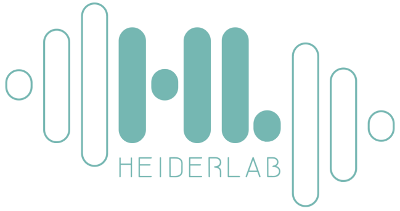CORona Drug InTEractions database
Identification of promising antiviral drug candidates against non-structural protein 15 (NSP15) from SARS-CoV-2: an in silico assisted drug-repurposing study
Rameez Jabeer Khan, Rajat Kumar Jha, Ekampreet Singh, Monika Jain, Gizachew Muluneh Amera, Rashmi Prabha Singh, Jayaraman Muthukumaran, Amit Kumar Singh
Abstract
The recent COVID-19 pandemic caused by SARS-CoV-2 has recorded a high number of infected people across the globe. The virulent nature of the virus makes it necessary for us to identify promising therapeutic agents in a time-sensitive manner. The current study utilises an in silico based drug repurposing approach to identify potential anti-viral drug candidates targeting non-structural protein 15 (NSP15), i.e. a uridylate specific endoribonuclease of SARS-CoV-2 which plays an indispensable role in RNA processing and viral immune evasion from the host immune system. The NSP15 protein was screened against an in-house library of 123 antiviral drugs obtained from the DrugBank database from which three promising drug candidates were identified based on their estimated binding affinities (ΔG), estimated inhibition constants (Ki), the orientation of drug molecules in the active site and the key interacting residues of NSP15. Molecular dynamics (MD) simulations were performed for the screened drug candidates in complex with NSP15 as well as the apo form of NSP15 to mimic their physiological states. Based on the stable MD simulation trajectories, the binding free energies of the screened NSP15-drug complexes were calculated using the MM/PBSA approach. Two candidate drugs, Simeprevir and Paritaprevir, achieved the lowest binding free energies for NSP15, with a value of −259.522 ± 17.579 and −154.051 ± 33.628 kJ/mol, respectively. In addition, their complexes with NSP15 also exhibited the strongest structural stabilities. Taken together, we propose that Simeprevir and Paritaprevir are promising drug candidates to inhibit NSP15 and may act as potential therapeutic agents against SARS-CoV-2.
Source: PubMed
Related molecules
Related interactions
| Target | Drug | Type | Result |
|---|---|---|---|
| Uridylate-specific endoribonuclease | Simeprevir | ||
| Uridylate-specific endoribonuclease | Paritaprevir |
| Target | Target affiliation | Drug | Type | Result |
|---|---|---|---|---|
| Target | Target affiliation | Drug | Type | Result |
| Name | Synonyms | Genes | Origin |
|---|---|---|---|
| Name | Synonyms | Genes | Origin |
| Name | Synonyms | PubChem | DrugBank | RCSB PDB | ATC |
|---|---|---|---|---|---|
| Name | Synonyms | PubChem | DrugBank | RCSB PDB | ATC |
| Title | Authors | DOI | Source | Article type | Date |
|---|---|---|---|---|---|
| Title | Authors | DOI | Source | Article type | Date |
| Title | Status | Phases | Start Date | Prim. Comp. Date | Comp. Date | First Post. Date |
|---|---|---|---|---|---|---|
| Title | Status | Phases | Start Date | Prim. Comp. Date | Comp. Date | First Post. Date |
CORDITE (CORona Drug InTEractions database) collects and aggregates data from PubMed, MedRxiv, BioRxiv, ChemRxiv and PMC for SARS-CoV-2. Its main focus is set on drug interactions either addressing viral proteins or human proteins that could be used to treat COVID. It collects and provides up-to-date information on computational predictions, in vitro, as well as in vivo study data.
The information provided is for research only and we cannot guarantee the correctness of the data.
Please contact dominik.heider@uni-muenster.de for further information.
Programmable access
There is an open API for access programmatically to the database. The API will print a JSON output:
- Interactions
https://cordite-api.uni-muenster.de/api.php?action=list&table=interaction
- Targets
https://cordite-api.uni-muenster.de/api.php?action=list&table=target
- Drugs
https://cordite-api.uni-muenster.de/api.php?action=list&table=drug
- Publications
https://cordite-api.uni-muenster.de/api.php?action=list&table=publication
- Clinical trials
https://cordite-api.uni-muenster.de/api.php?action=list&table=clinical_trial

